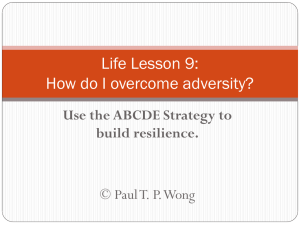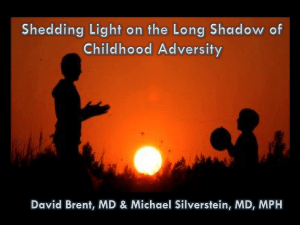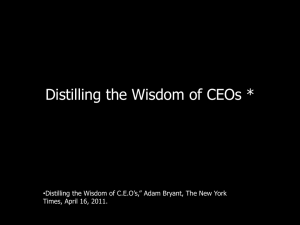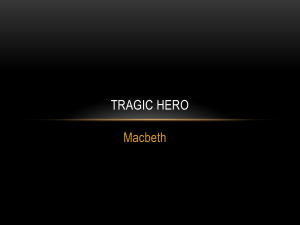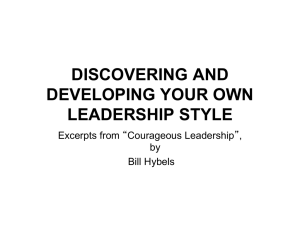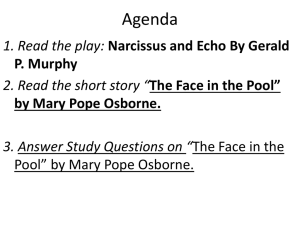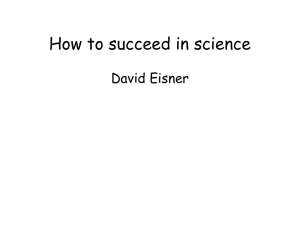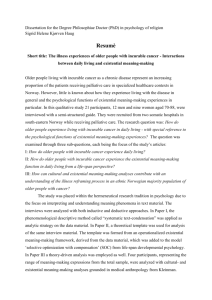Life Lesson 8: How do I overcome adversities?
advertisement
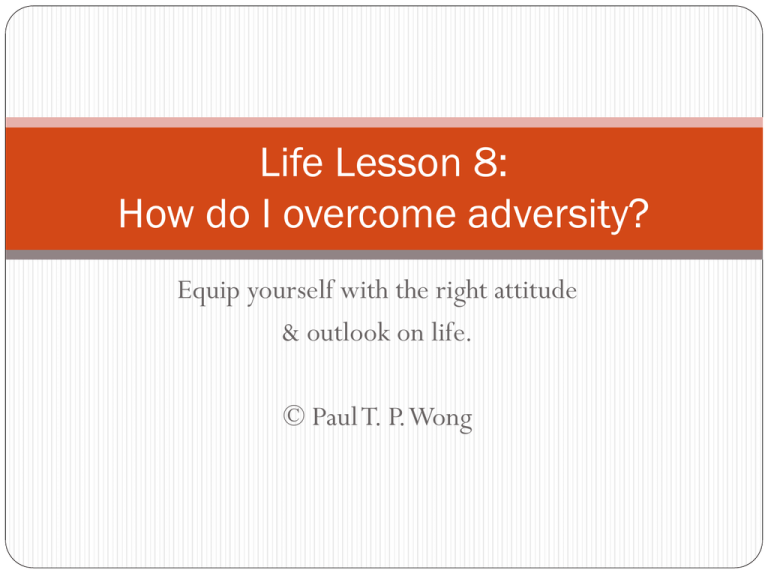
Life Lesson 8: How do I overcome adversity? Equip yourself with the right attitude & outlook on life. © Paul T. P. Wong Is the glass half empty or half full? Develop the right attitude & outlook on life What Is Your Outlook on Life? 1) Optimism: Life is good, only expect good things to happen 2) Pessimism: Life is bad, only expect bad things to happen 3) Optimistic Pessimism: Life is both good and bad, but eventually good will prevail Lesson 1: Have A Tragic Sense of Life “In this world you will have trouble.” - Jesus The first noble truth of Buddhism: Life is full of suffering Every life is touched by tragedy Having a tragic sense of life offers you the best preparation for the tragedies of life Viktor Frankl’s tragic optimism Components of tragic optimism (TO) Acceptance of the bleak reality Affirmation of the value and meaning of life Self-transcendence (altruism) Faith in God and others Courage to face adversity Self-transcendence enhances the wellbeing & meaning in life of both self and others in both good and bad times. “COURAGE IS THE FIRST OF THEVIRTUES, BECAUSE IT MAKES ALL OTHERS POSSIBLE.” ~Aristotle Courage means having the capacity to stand up for what you believe and face fears and dangers unflinchingly. It takes courage to confront and accept yourself in spire of all your limitations. Courage empowers you to expand your hope beyond the walls that confine you. A good example of tragic optimism A tragic sense of life is an effective inoculation against tragedies Lesson 2: What matters most is how you react to adversity 3 Common Responses to Adversity 1) Catastrophizing: Creating unnecessary anxieties & suffering 2) Trivializing: Ignoring the real danger & believing in delusions 3) Assessing it rationally: Appraising the situation realistically but with a sense of TO The process of catastrophizing: Negative schema & anticipation 4 Prototypical Life Trajectories Lesson 3: Face adversity with a meaning mindset Focus on situational meaning rather than global meaning Seeking both causal and existential understanding Develop a meaning mindset as a frame of reference for both positive and negative events Learn how to make full use of our capacity for meaning-seeking and meaning-making Suffering triggers the quest for meaning “Why” is a universal cry for help Meaning seeking may be unpleasant It can pose a challenge to your beliefs It can lead to rumination and depression There are no answers to the problem of suffering There are no answers to the problem of injustice Viktor Frankl emphasizes that it is more adaptive to move from “Why” to “How” or “What” Meaning-making is an all-purpose tool for effective coping Our universal capacity for meaning-making is able to protect us against hardships and traumas, but also able to guides us towards achieving a preferred future Meaning-making empowers us to endure, transcend and transform all trials and tribulations Meaning-making is involved us both the PURE strategy of flourishing and the ABCDE strategy of overcoming Conclusions In this lecture, we have learned three important life attitudes which can overcome adversity: 1. Develop a tragic sense of life as an inoculation against adversity 2. You have the freedom to react to adversity rationally 3. Cope with every tragic event through the meaning mindset and meaning-making capacity
